Nov. 2, 2015
Publications
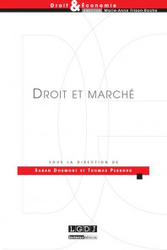
Référence complète : Frison-Roche, M.-A., Droit et Marché : évolution, in Dormont, S. et Perroud, Th. (dir.) Droit et Marché, coll. "Droit et Économie, LGDJ - lextenso éditions, 2015, p.265-278.
Cet article trouve une forme plus développée et plus personnelle dans un working paper et constitue le prolongement d'une participation à un colloque.
Droit et Marché à première ne sont pas sur le même plan, l'un étant une construction, une invention humaine, l'autre étant des marchés. Mais depuis le XVIIIième en Europe, l'on a pareillement institué, donc inventé le "Marché". Ces deux institutions ont un rapport dialectique, puisque c'est par le droit que le Marché a été construit. La puissance des institutions dépend de ceux qui les construisent mais surtout de la foi de ceux qui les contemplent. Or, si le Droit a construit le Marché, aujourd'hui la foi se tourne vers le Marché et la croyance d'une loi qui lui sera proche et naturelle le rend universel, transportant avec lui sa "petite loi" juridique qu'est le contrat et le juge qui y est inclus, l'arbitre. Plus encore, parce tout cela n'est qu'affaires humaines et donc affaires de pouvoir, la place de l'Institution qui fût celle de la puissance, tirée de sa source, par exemple le Peuple Constituant, est en train de descendre en-dessous de ce qui est là, c'est-à-dire le fait. En effet, que peut-on contre un fait ? Seul Dieu, et donc une Assemblée parlementaire par exemple qu'il est aisé de destituer, peut prétendre lutter contre un fait. Or, le Marché est aujourd'hui présenté comme un fait, tandis que ce qui le gouverne seraient des phénomènes naturels, comme l'attraction entre l'offre et la demande, le fait d'offre ce qui attire, le fait de demander ce que l'on désire. Dès lors, seul Dieu, souvent brandi avec grande violence, peut prétendre encore dire quelque chose contre cela.
Aujourd'hui, Droit et Marché sont face à face. Curieusement les juristes sont assez taisant, peut-être sidérés de la destitution du Droit. Mais c'est la question de la Loi première qui est en jeu. Dans l'esprit occidental, depuis la pensée grecque l'on a pensé le sujet et la personne comme étant première, c'est-à-dire posée sans condition. Si on pose comme loi première l'efficacité de la rencontre des offres et des demandes, le monde a changé. Un monde sans Personne, avec des êtres humains plus ou moins attrayant, plus ou moins demanding , le monde des puissances ayant remplacé le monde de la volonté égale de tous. La technique devient la préoccupation première. Le droit qui était "art pratique" et les lois faites pour l'homme, devient une technique et les juristes se devront alors d'être neutres. Depuis quelques décennies, Droit et Marché sont donc face-à-face, mais le Marché semble en passe de dominer parce qu'il est en train de quitter le statut inférieur d'institution pour accéder à celui, universel, de fait. Il est en cela en passe de gagner.
Nov. 14, 2013
Publications
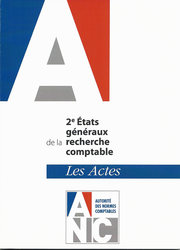
Référence complète : Frison-Roche, Marie-Anne, L'ancrage de la comptabilité dans le droit civil et ses conséquences dans les concepts sous-jacents des normes comptables, in La comptabilité est-elle un film ou une photo ?, 2ième État généraux de la recherche comptable, Paris, 2011.
____
Lire l'ensemble des actes des État généraux.
Lire le résumé de l'article ci-dessous.
June 18, 2012
Publications
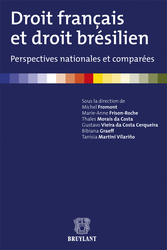
► Référence complète : M. Froment, M.-A. Frison-Roche, M. da Costa, T. Vireira da Costat, G. Cerqueira, B. Graeff, T. Martini Vilarino. (dir.), Droit français et droit brésilien. Perspectives nationales et comparées, Bruylant, Bruxelles, 2012, 1.088 p.
_____
Lire la quatrième de couverture.
_________
June 17, 2011
Publications
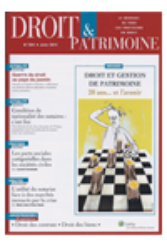
Référence complète : FRISON-ROCHE, Marie-Anne, L’utilité du notariat face à des marchés menacés par la crise, Droit & Patrimoine, Lamy, n°204, juin 2011, p.38-42.
Il faut appliquer la technique du "coût/avantage » pour mesure son utilité lorsque des marchés sont menacés par la crise. En effet, s’il y a des défaillances de marché, par exemple par la financiarisation de ceux-ci, ils ne peuvent plus supporter des risques qui s’avèrent systémiques. Or, l’incertitude des propriété" et la chaine d’engagements inconsidérés constituent des risques systémiques. Le notariat s’avère utile en ce qu’il produit des actes authentiques, actes normatifs produisant de l’incontestabilité, c’est-à-dire de la sécurité réduisant les risques sur les marchés. En outre, par ces diligences et l’organisation disciplinaire de la profession, le notaire assure la plus juste coïncidence entre le negotium et l’instrumentum, ce qui garantit ou restaure sur les marchés la confiance, qui en est le bien commun.
Lire le résumé de l'article ci-dessous.
Aug. 6, 2010
Publications
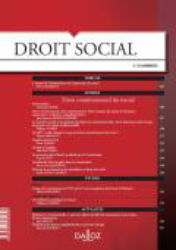
Lire le compte rendu.
Sept. 29, 2008
Publications
March 11, 2008
Publications
March 31, 2005
Publications
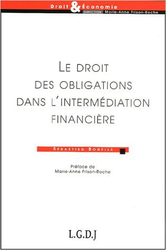
Référence complète : Frison-Roche, M-A., Article introductif de Le droit des obligations dans l’intermédiation financière, coll. "Droit et Économie", LGDJ - Lextenson, 2005, p 7-10.
Jan. 27, 2005
Publications
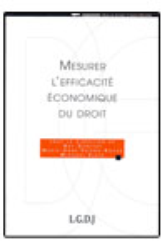
Référence complète : FRISON-ROCHE, Marie-Anne, L’idée de mesurer l’efficacité économique du droit, in CANIVET, Guy, KLEIN, Michael, FRISON-ROCHE, Marie-Anne (dir.), Mesurer l’efficacité économique du droit, coll. "Droit et Economie", LGDJ, 2005, pp.19-32.
Lire la présentation générale de l'ouvrage dans lequel l'article est paru.
Jan. 25, 2005
Publications
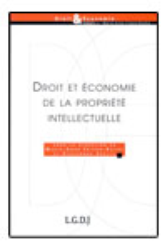
Aug. 4, 2004
Publications
Référence complète : FRISON-ROCHE, Marie-Anne, Le principe du contradictoire et les droits de la défense devant l’Organe de Règlement des Différents de l’Organisation Mondiale du Commerce in Le principe du contradictoire devant les juridictions internationales, collection « Contentieux international », Pedone, 2004, pp.125-148.
Sept. 26, 2003
Publications
June 12, 2003
Publications
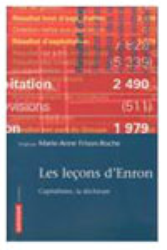
Référence complète : Frison-Roche, M.-A., Les leçons d'Enron. Autour du rapport du Sénat américain, collection "Découvertes", Éditions Autrement, 2003.
L'ouvrage reproduit tout d’abord, traduit en français, le rapport que le Sénat américain a publié à propos de la faillite d’Enron. Le livre établit son analyse par Marie-Anne Frison-Roche qui souligne que cette défaillance particulière est le signal de la faillite de tout un système de contrôle du pouvoir économique et financier, mené par des dirigeants trop ambitieux, une gestion du risque trop audacieuse, des financiers peu scrupuleux et une croyance euphorique dans l’autorégulation.
En contrepoint, des points de vue sont exprimés par des juristes et des économistes.
L’avant-propos est de Claude Bébéar.
Sept. 25, 2002
Publications
Sept. 23, 2002
Publications
Feb. 13, 2002
Publications
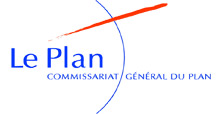
Direction d’une recherche pour le Commissariat général au Plan sur L’hypothèse d’un droit mondial de la concurrence à travers l’Organisation Mondiale du Commerce, remis en février 2002.
Lire la contribution de synthèse : Démonstration et intérêt d’un droit mondial de la concurrence, sous-jacent au droit de l’Organisation Mondiale du Commerce, p.1-35.
______
Enregistrer
April 5, 2001
Publications
Nov. 1, 2000
Publications
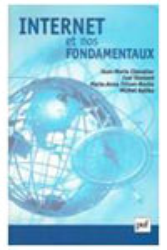
► Full Reference: J.-M. Chevalier, I. Ekeland, M.-A. Frison-Roche & M. Kalika, Internet et nos fondamentaux ("Internet and our Fondamentals"), PUF, 2000, 128 p.
____
► English general presentation of this book and its summary: The Internet creates an impression of extreme novelty. Indeed, the fundamentals, have changed, as much in economics, management as in law. e-management, e-commerce, e-finance: all disciplines must rebuild their rules, so that the behaviours of actors are in a new way framed.
The Internet is not just a new way of communicating. It introduces new behaviours, new rules, some say a new world, perhaps a new life for pioneers of a new kind. This impression of extreme newness is the sign of a revolution, because the facts about the Internet do not seem to be explainable by any previously established rule: the principles to which we must refer have changed, the fundamentals that enable us to translate the world into abstractions, to understand it and to dominate it, are in mutation.
How can we understand the Internet? Not necessarily by delving into its technical and everyday aspects, but by confronting it with the fundamentals of the various disciplines in order to measure which key notions the Internet is abusing, which it is destroying and which it is imposing. What remains of our ways of thinking and practising science, law, economics and management? What are these disciplines built on? How can we understand them and bring them together again, under the impact of the Internet? The ambition of this book is to shed light on these new fundamentals, to tackle the conceptual revolution that Internet technology is bringing with it.
____
Content :
Introduction, p.7
Internet et la recherche en sciences exactes et naturelles ("The Internet and research in the natural sciences"), p.19
Les bouleversements du droit par Internet ("The upheaval of law caused by the Internet"), p. 37
Les fondements des sciences économiques interpellés par Internent ("The foundations of economics challenged by the Internet"), p.77
Internet et les sciences de gestion : l’émergence du e-management ("The Internet and management sciences: the emergence of e-management"), p. 103
________
Dec. 19, 1997
Publications
Sept. 7, 1997
Publications
Jan. 22, 1997
Publications
June 7, 1995
Publications
► Référence complète : M.-A. Frison-Roche, "Le modèle du marché", Archives de philosophie du Droit (APD), Droit et esthétique, t.40, Sirey, 1995, p.286-313.
____
____
► résumé de l'article : Le droit économique se construit autour du marché libéral et vise à assurer son effectivité, dans une attitude servante à son égard. Même si le marché libéral est souvent présenté comme un fait avec lequel on ne pourrait composer, il constitue une invention de nature politique et philosophique. Cette autosuffisance se marque par le pouvoir du marché d'ignorer ce qui lui est hétérogène, en son sein, telle l'organisation interne de l'entreprise ou le mécanisme de la convention, ou hors de lui, le marché procédant à l'élimination du politique et à l'ignorance du social. Enfin, cette suprématie assoit sur ce qui est présenté comme la "loi du marché", nouvelle loi naturelle entraînant concentration des puissances et élimination des faibles, et sur l'aptitude du marché à assortir de punition le comportement qui lui est défavorable, à travers un droit des marchés essentiellement répressif et qui n'est pas sans rappeler les théories classiques de la défense sociale.
________